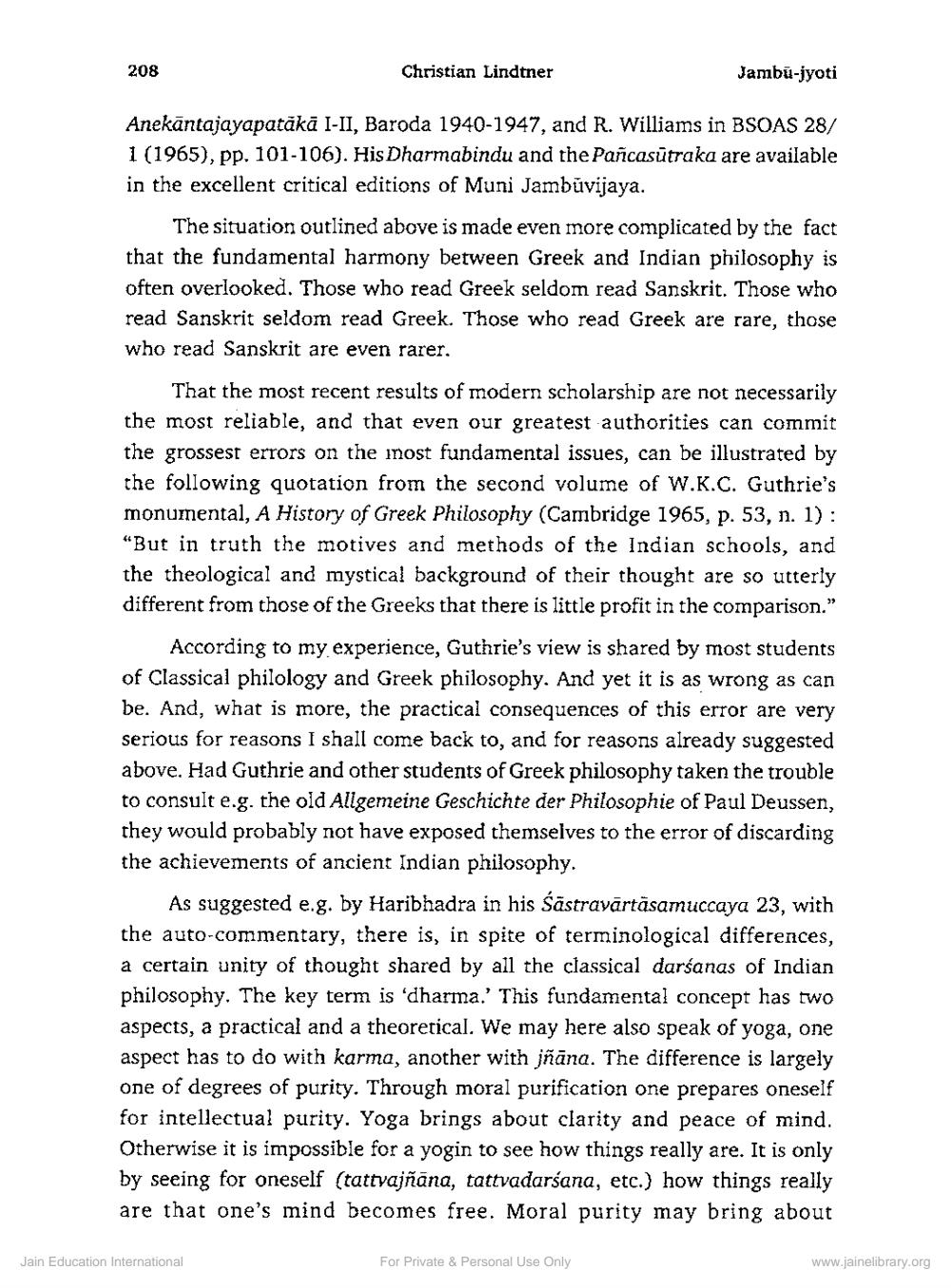Book Title: Humanism of Haribhadra Author(s): Christian Lindtner Publisher: Z_Nirgranth_Aetihasik_Lekh_Samucchay_Part_1_002105.pdf and Nirgranth_Aetihasik_Lekh_Samucchay_Part_2 View full book textPage 6
________________ 208 Christian Lindtner Jambu-jyoti Anekāntajayapatākā I-II, Baroda 1940-1947, and R. Williams in BSOAS 28/ 1 (1965), pp. 101-106). His Dharmabindu and the Pancasūtraka are available in the excellent critical editions of Muni Jambūvijaya. The situation outlined above is made even more complicated by the fact that the fundamental harmony between Greek and Indian philosophy is often overlooked. Those who read Greek seldom read Sanskrit. Those who read Sanskrit seldom read Greek. Those who read Greek are rare, those who read Sanskrit are even rarer. That the most recent results of modern scholarship are not necessarily the most reliable, and that even our greatest authorities can commit the grossest errors on the inost fundamental issues, can be illustrated by the following quotation from the second volume of W.K.C. Guthrie's monumental, A History of Greek Philosophy (Cambridge 1965, p. 53, n. 1): "But in truth the motives and methods of the Indian schools, and the theological and mystical background of their thought are so utterly different from those of the Greeks that there is little profit in the comparison.” According to my experience, Guthrie's view is shared by most students of Classical philology and Greek philosophy. And yet it is as wrong as can be. And, what is more, the practical consequences of this error are very serious for reasons I shall come back to, and for reasons already suggested above. Had Guthrie and other students of Greek philosophy taken the trouble to consult e.g. the old Allgemeine Geschichte der Philosophie of Paul Deussen, they would probably not have exposed themselves to the error of discarding the achievements of ancient Indian philosophy. As suggested e.g. by Haribhadra in his Šāstravārtāsamuccaya 23, with the auto-commentary, there is, in spite of terminological differences, a certain unity of thought shared by all the classical darśanas of Indian philosophy. The key term is dharma.' This fundamental concept has two aspects, a practical and a theoretical. We may here also speak of yoga, one aspect has to do with karma, another with jñāna. The difference is largely one of degrees of purity. Through moral purification one prepares oneself for intellectual purity. Yoga brings about clarity and peace of mind. Otherwise it is impossible for a yogin to see how things really are. It is only by seeing for oneself (tattvajñāna, tattvadarśana, etc.) how things really are that one's mind becomes free. Moral purity may bring about Jain Education International For Private & Personal Use Only www.jainelibrary.orgPage Navigation
1 ... 4 5 6 7 8 9 10 11 12 13 14 15 16 17 18 19 20 21 22 23 24 25 26 27 28 29 30 31 32 33 34 35 36 37 38 39 40 41 42 43 44 45 46 47 48 49 50 51 52 53 54 55 56 57 58 59 60 61 62 ... 66
